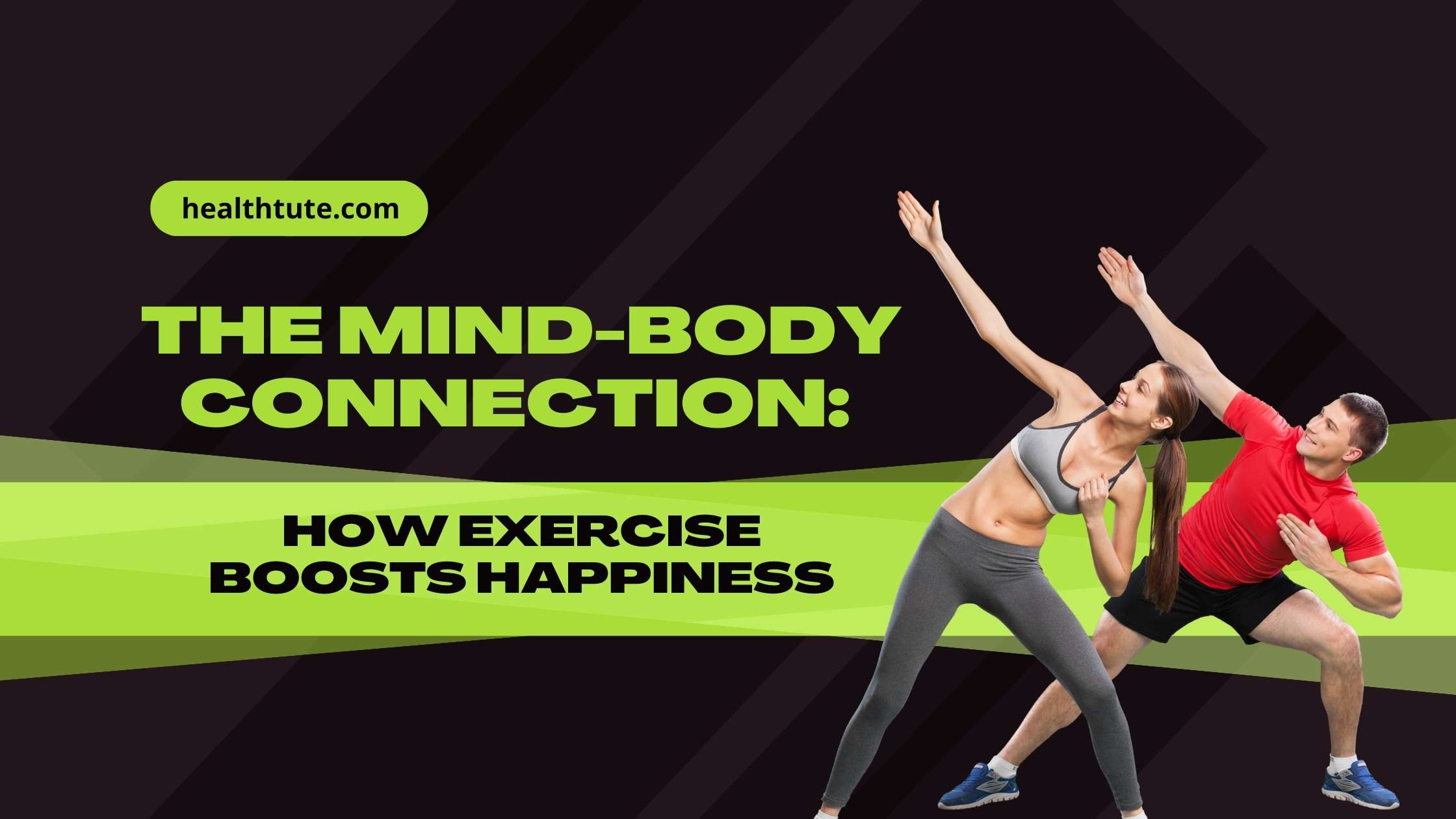In today’s fast-paced world, where stress and anxiety have become a part of our daily lives, it is essential to explore the powerful connection between the mind and body. Many studies have shown that exercise not only benefits our physical health but also has a profound impact on our mental well-being. This article delves into the fascinating topic of the mind-body connection and explores how exercise can significantly boost happiness.
The Science Behind the Mind-Body Connection
What is the Mind-Body Connection?
Before we delve into the positive effects of exercise on happiness, let’s first understand the concept of the mind-body connection. The mind-body connection refers to the intricate relationship between our thoughts, emotions, and physical health. It suggests that our mental and emotional state can influence our physical well-being and vice versa.
The Role of Neurotransmitters
Neurotransmitters are chemicals in the brain that play a crucial role in regulating mood and emotions. When we exercise, our bodies release neurotransmitters like endorphins, dopamine, and serotonin. These chemicals are often referred to as “feel-good” hormones as they help reduce stress, alleviate anxiety, and create a sense of happiness and well-being.
Exercise and Happiness: Unraveling the Link
Endorphins: The Natural Stress Relievers
One of the primary reasons why exercise makes us feel happy is the release of endorphins. These natural painkillers not only help alleviate physical pain but also act as stress relievers. Engaging in activities like jogging, dancing, or cycling triggers the release of endorphins, leaving us with a sense of euphoria and happiness.
Dopamine: The Reward Mechanism
Dopamine is associated with pleasure and reward. When we set and achieve exercise goals, our brain releases dopamine, making us feel accomplished and motivated. This dopamine release reinforces positive behavior and encourages us to continue exercising, ultimately leading to increased happiness and self-confidence.
The Link Between Exercise and Mental Well-Being
Reducing Stress and Anxiety
Regular exercise has been shown to significantly reduce stress and anxiety levels. When we engage in physical activity, our minds shift focus from daily worries to the present moment, promoting relaxation and a sense of calm. Additionally, the release of endorphins during exercise acts as a natural stress reliever, helping us cope better with life’s challenges.
Fighting Depression
Exercise can be an effective tool in combating depression. Studies have indicated that individuals who participate in regular physical activity are less likely to experience symptoms of depression. Exercise not only boosts mood-enhancing neurotransmitters but also promotes a sense of accomplishment and social interaction, which are vital in battling depression.
Enhancing Cognitive Function
Physical activity is not just beneficial for the body; it also has a positive impact on cognitive function. Regular exercise has been linked to improved memory, focus, and overall brain health. It stimulates the growth of new neurons, which enhances brain plasticity, ultimately leading to better cognitive performance and increased happiness.
Incorporating Exercise into Your Daily Routine
Finding an Activity You Enjoy
The key to sticking to an exercise routine is finding an activity that you genuinely enjoy. Whether it’s dancing, swimming, hiking, or playing a sport, engaging in activities you love will make exercise feel less like a chore and more like a pleasurable experience.
Setting Realistic Goals
Start small and set achievable goals. Gradually increase the intensity and duration of your workouts as you build stamina and confidence. Setting realistic goals ensures you stay motivated and maintain a positive attitude towards exercise.
Making Exercise a Social Activity
Exercising with friends or joining group classes can enhance the overall experience. Social interaction during exercise not only makes it enjoyable but also provides a support system that keeps you motivated and committed to your fitness routine.
Conclusion
The mind-body connection is a fascinating phenomenon that highlights the profound impact of exercise on our happiness and well-being. Regular physical activity not only benefits our physical health but also has incredible effects on our mental and emotional state. By triggering the release of endorphins and other mood-enhancing neurotransmitters, exercise helps combat stress, anxiety, and depression while promoting happiness, self-confidence, and cognitive function.
FAQs
- Is any form of exercise beneficial for happiness? Yes, any form of exercise that gets your body moving and your heart rate up can trigger the release of endorphins and boost happiness.
- How often should I exercise to experience the mental benefits? Aim for at least 150 minutes of moderate-intensity exercise or 75 minutes of vigorous-intensity exercise per week for optimal mental health benefits.
- Can exercise replace medication for depression and anxiety? While exercise can be a powerful tool in managing depression and anxiety, it should not replace professional medical advice or prescribed medication when necessary.
- Can I exercise if I have a busy schedule? Absolutely! Even short bursts of physical activity throughout the day, such as taking the stairs or going for a brisk walk during lunch, can contribute to your overall happiness and well-being.
- Can exercise help with sleep problems? Yes, exercise can improve sleep quality by promoting relaxation and reducing stress, leading to a better night’s rest. However, it’s essential to avoid vigorous exercise close to bedtime to prevent sleep disturbances.


[…] 6. Stress-Relief Strategies Through Exercise […]